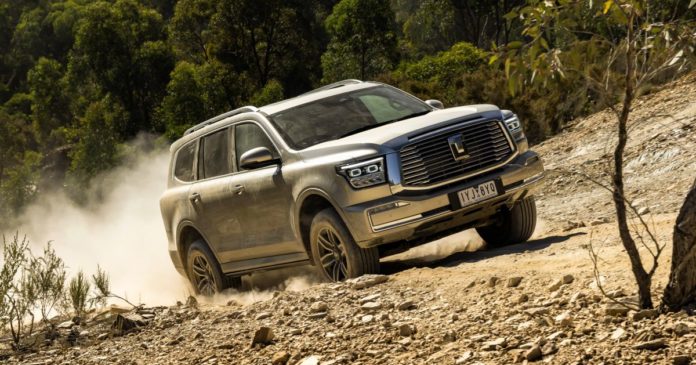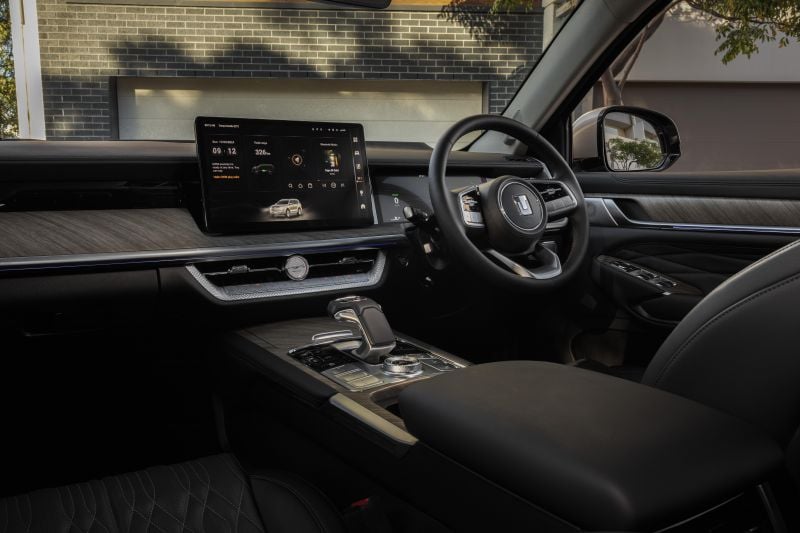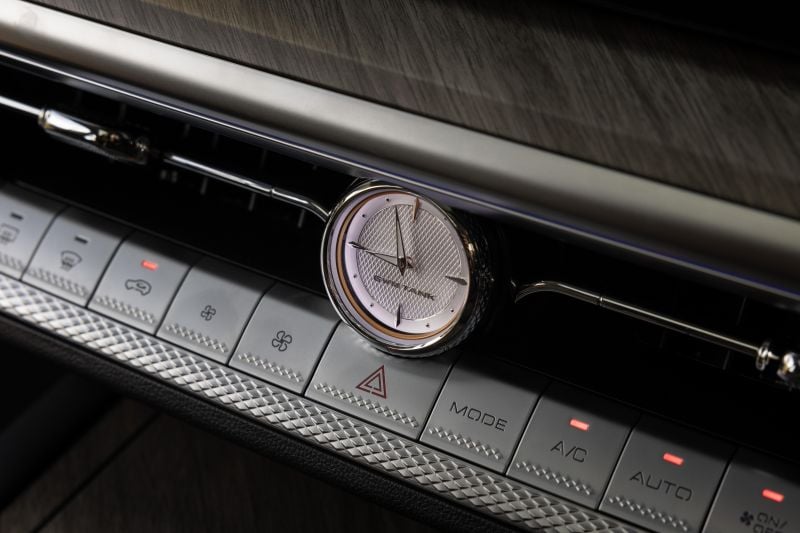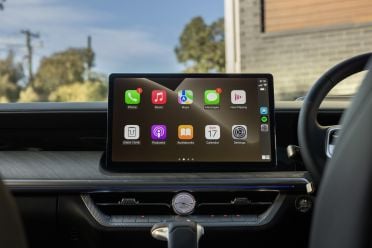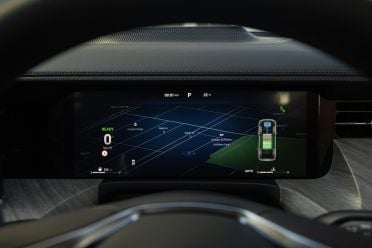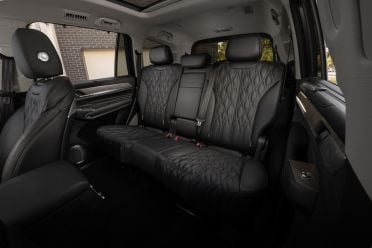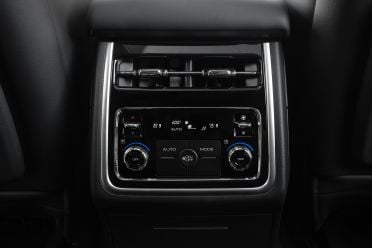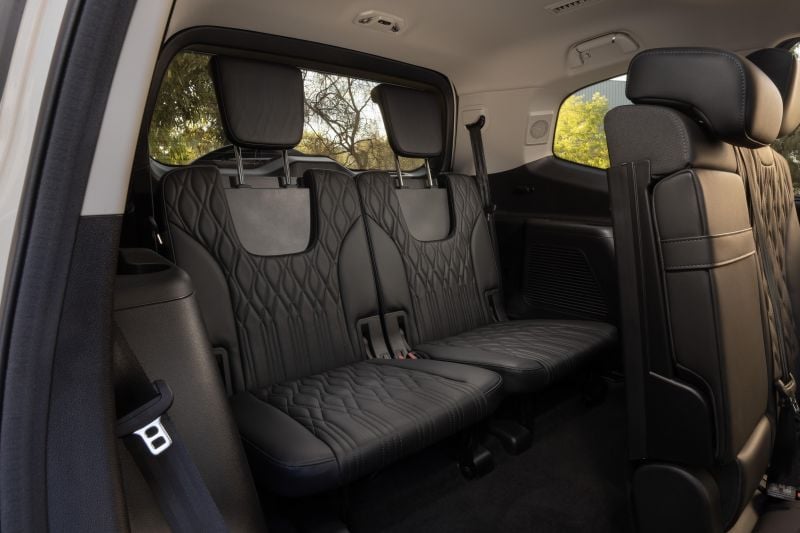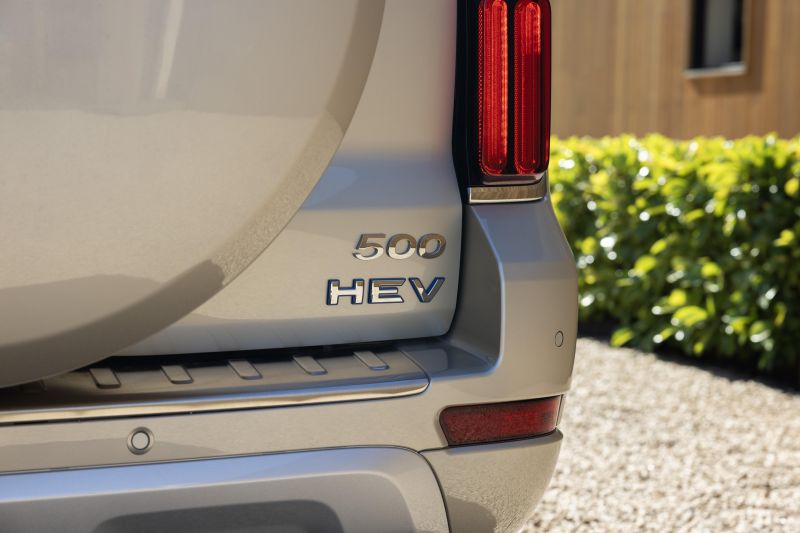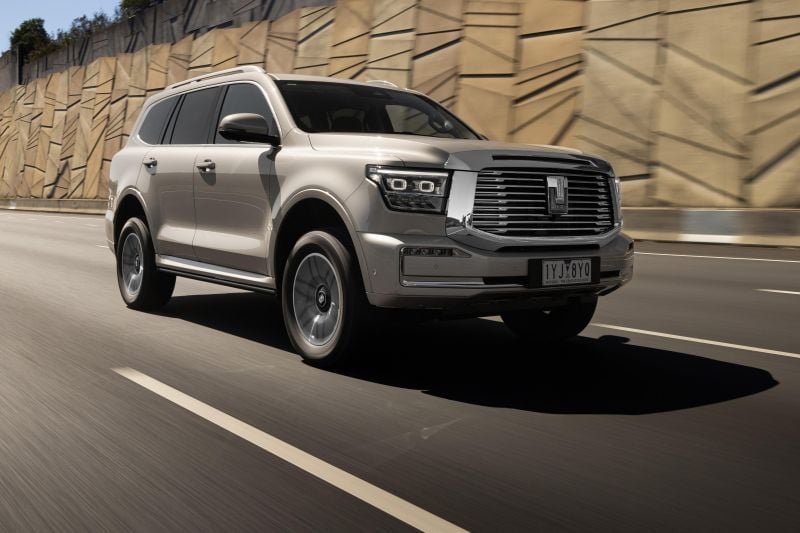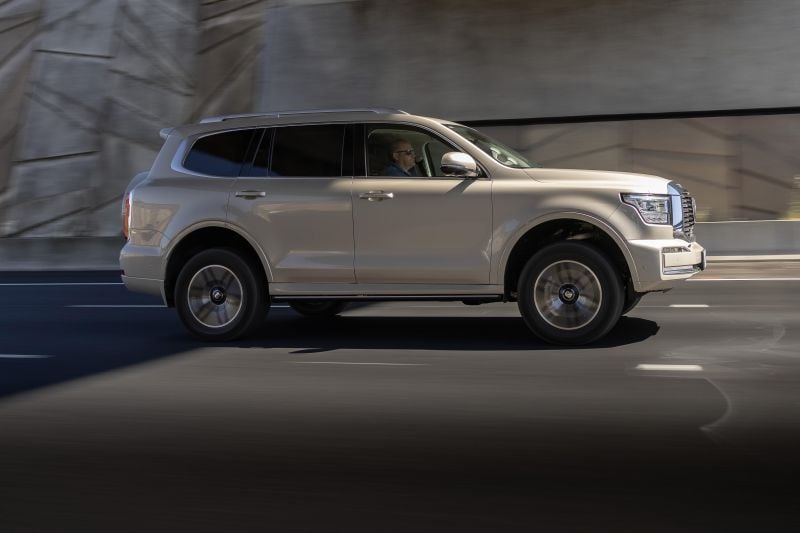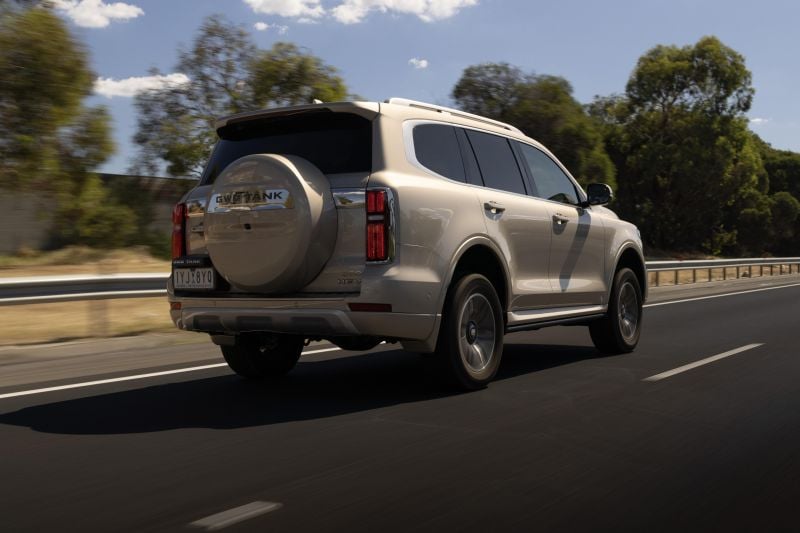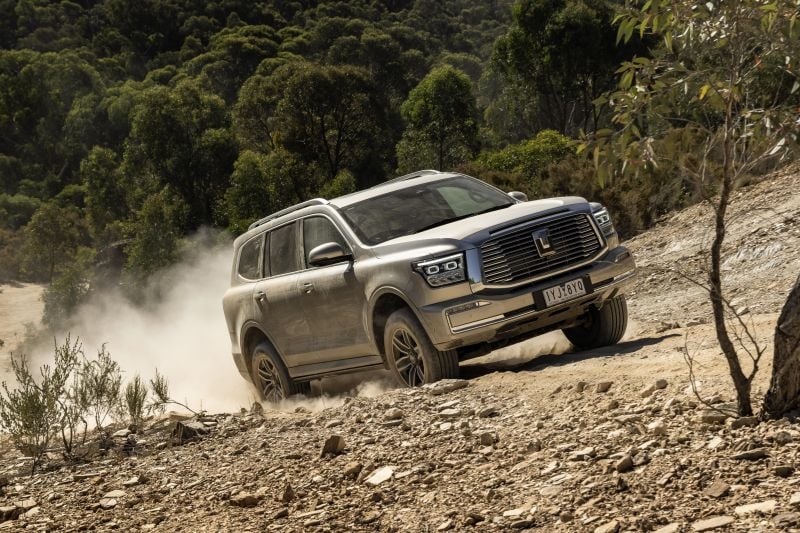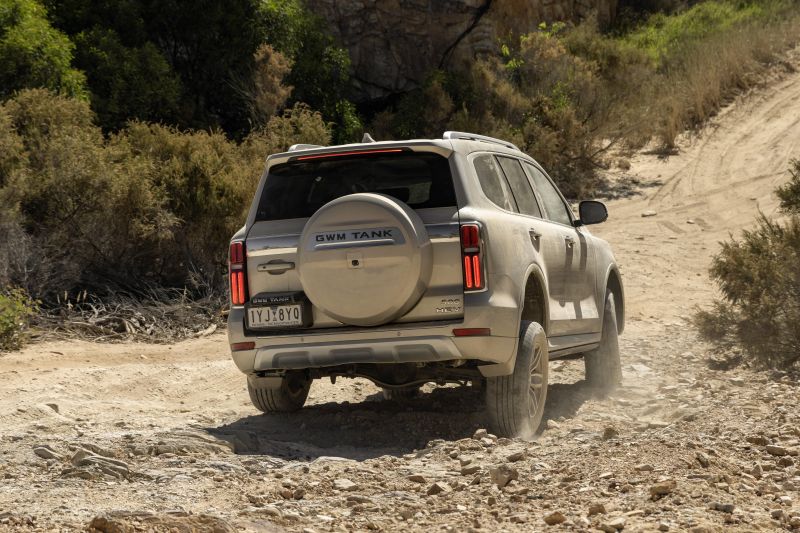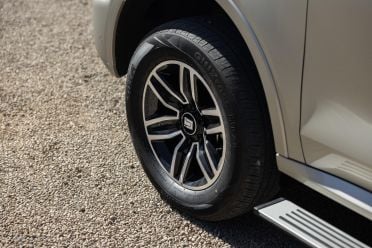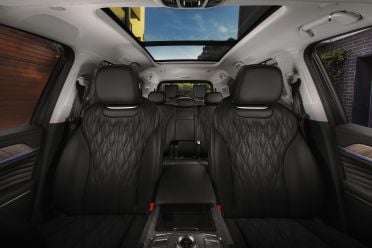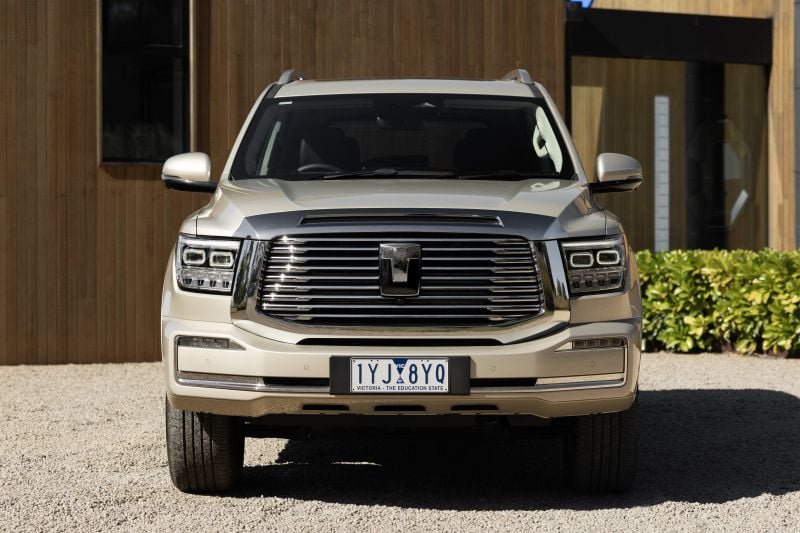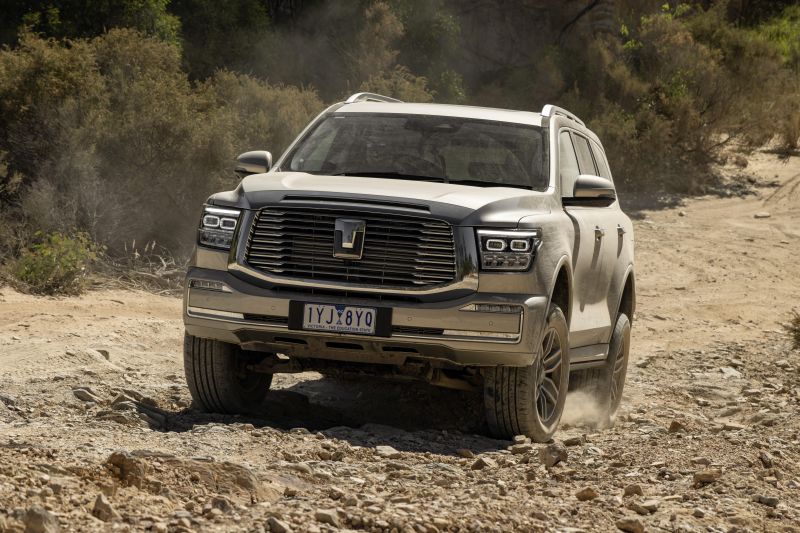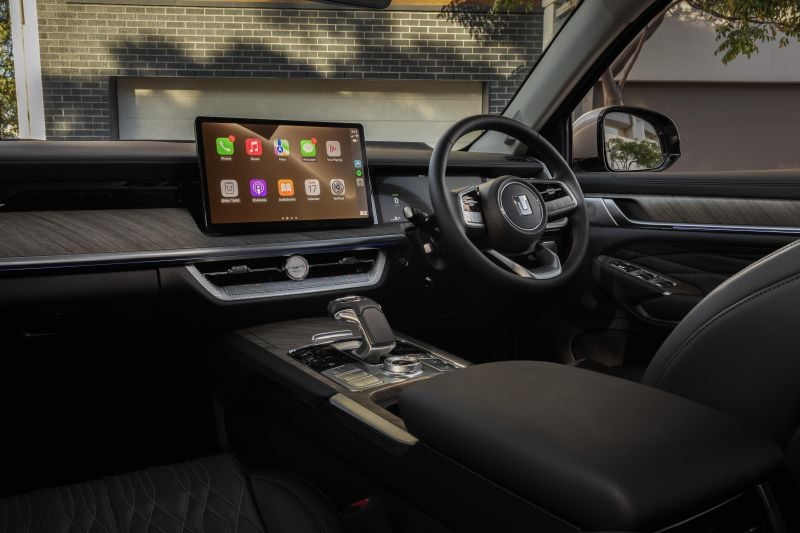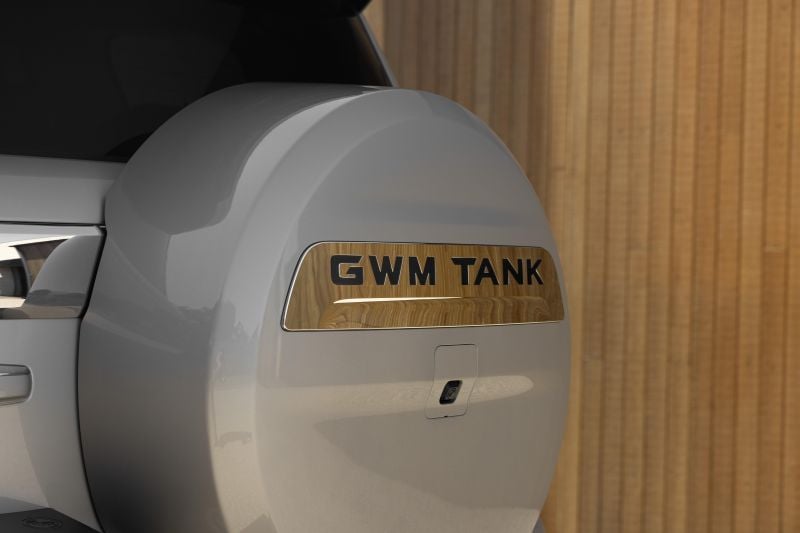GWM has lofty ambitions in Australia.
Not content with selling cheap SUVs to budget-oriented buyers, it’s gradually moving to take on a fair-dinkum Australian icon in the Toyota Prado.
The 2024 GWM Tank 500 is the most expensive GWM ever to grace local showrooms, with a price nudging $75,000 in Ultra guise. It’s also the most luxurious, and the biggest, and the most impressive to look at in person; there are hints of other cars in certain angles, but it’s a unique vehicle that will turn plenty of heads.
Style isn’t enough in this segment, however. The Tank 500 goes head-to-head with cars people trust to take their families deep into the wilderness, which means that style needs to be backed with substance.
For the most part, it delivers on that front too.
How does the GWM Tank 500 compare?
View a detailed breakdown of the GWM Tank 500 against similarly sized vehicles.

GWM
Tank 500
How much does the GWM Tank 500 cost?
- 2024 GWM Tank 500 Lux: $66,490
- 2024 GWM Tank 500 Ultra: $73,990
All prices are drive-away
What is the GWM Tank 500 like on the inside?
Wow. This is a seriously good looking car behind the wheel.
From the quilted leather on the seats, to the massive screens, to the Bentley-aping clock between the air vents, it’s a real showstopper inside. GWM also gets credit for offering a choice between black, or blue-and-white interior options in Australia.
The fundamentals are good as well. I’ve struggled to get comfortable in other GWM cars, but the Tank has supportive front seats with enough adjustment to accomodate awkward (or big, Australian) bodies. The seats themselves are generously padded, and left us feeling fresh after half a day behind the wheel.
Everything you poke or prod feels solid, from the buttons on the centre console to the leather-trimmed steering wheel, and even the entry car comes generously equipped. GWM is going to sell plenty of Tanks on the strength of its cabin.
The technology here is an improvement over what’s currently on offer across the range. The central touchscreen is huge and features polished graphics within the native software, while the Hey GWM voice assistant is incredibly responsive… to the point it’s a bit too keen to jump in when you mention the brand name.
It’s theoretically able to control everything from the radio to the windows, and at times worked perfectly – but it also got its wires crossed on a few inputs, turning off the head-up display instead of opening the sunroof at one point.
Apple CarPlay (wireless) is enormous on the screen, with massive icons and bright colours making it essentially idiot proof. Thankfully, it’s also easy to turn the screen off at night using the shortcut menu that pulls down from the top of the screen.
The digital driver’s display doesn’t look all that clean – the graphics are still a bit fussy, and you can’t mimic old-school analogue dials. But you are able to display a map in the cluster, and it’s easy enough to read on the move.
Storage up front is decent, with deep central cupholders, a deep central bin, and a cheap-feeling sliding key tray in between the two. The door pockets have space for bigger bottles, and there’s a neat cutout beneath the transmission tunnel backing up the wireless phone charger.
Rear passengers are well looked after. Legroom is excellent behind adult drivers, and headroom is plentiful despite the panoramic sunroof. The tall windows will mean shorter passengers or kids can still see out, too.
Air vents feature on the transmission tunnel and in the roof, along with amenities like a fold-down central armrest with bottle holders and USB charge ports. Interestingly, the rear outboard seats are cooled instead of heated in the top-spec Ultra.
ISOFIX points feature on the outboard rear seats, and there’s a trio of top-tethers back there for child seats.
Accessing the third row is tougher than it really should be, due to the two-stage seat fold-and-slide mechanism. You need to flatten the backrest in one move then use another to slide the bench forward, and it takes some flexibility to climb back there.
Given the third row has a convenient power-folding function in the Ultra, it’s a shame the second row doesn’t have a more elegant mechanism.
Space in the third row is better than expected. Adults won’t want to spend too much time back there, but with the second row slid forward they do fit – and kids are well catered for, with roof-mounted air vents. It’ll be interesting to see how the new Prado shapes up.
Boot space is a claimed 1459 litres with the rear seats all folded, 795 litres with the second row in place, and 98 litres with the third row in place. There’s a full-sized spare wheel on the side-hinged tailgate, which is a throwback that does make the boot harder to access when you’re parked up against a wall or other vehicles.
What’s under the bonnet?
All versions of the Tank 500 at launch will feature an electrified four-cylinder turbo petrol powertrain.
| Model | GWM Tank 500 Hybrid |
|---|---|
| Engine | 2.0L 4cyl-cylinder turbo |
| Transmission | 9-speed automatic |
| Power | 180kW |
| Torque | 380Nm |
| Electric motor | Single motor, transmission mounted |
| Power | 78kW |
| Torque | 268Nm |
| Combined peak power | 255kW |
| Combined peak torque | 648Nm |
| Fuel consumption (claimed) | 8.5L/100km |
| Fuel tank capacity | 80L |
| Fuel rating | 91 RON |
| Kerb weight | 2432kg |
It has a braked towing capacity of 3000kg, a GVM of 3395kg, and a GCM of 6705kg.
How does the GWM Tank 500 drive?
We’re so used to big family four-wheel drives being backed by a rattly diesel soundtrack, it’s refreshing to drive one that starts in silence.
With its hybrid powertrain, you don’t get any diesel clatter or rattle through the steering wheel at a standstill, and even on the move it’s impressively quiet and smooth.
Unlike a Toyota hybrid, it runs through the gears when you accelerate hard, and it feels relatively electric at low speeds. Along with the smooth-moving hybrid system, what immediately stands out is how comfortable the ride is here.
It’s not uncommon for ute-based four-wheel drives (the Tank 500 shares its bones with the GWM Cannon Alpha not yet confirmed for Australia) to feel a bit brittle, in a nod to their commercial roots.
The Tank mostly avoids that trap, with a long-legged feeling that’s pretty luxurious by class standards.
With light steering and a decent view of the corners of the bonnet, our brief stint in the city showed the Tank doesn’t feel like a tank in confined spaces. GWM also does some of the best driver assist cameras in the business, with crisp resolution and the ability to pivot the view around a 3D model of the car.
That remains the case when you’re cruising at highway speeds. It hums along nicely, smoothing out rugged country highways without breaking a sweat – save for more wind noise from the mirrors than would otherwise be ideal.
It’s nicely planted, settling without too much bobbing around over big highway crests and dips, although the occasional sharp pothole or crack in the road still elicits a shimmy from the car’s ladder frame.
But… GWM still desperately needs to do something about its hyperactive driver assists if it’s going to convince Australian families to spend long periods of time behind the wheel of its cars, instead of a Toyota or Ford.
The driver attention monitoring system is determined to tell you to pay attention to the road every couple of minutes, even if your eyes are locked on the horizon, and the emergency lane-keeping just isn’t equipped to deal with country roads with mottled light or gravel shoulders.
It’s almost belligerent in its determination to get involved, constantly chiming in after the driver has overridden it, forcing you to take your eyes off the road to switch the system off in the touchscreen. Safety first.
The GWM Tank 500 comes with some solid off-road bona fides, with a 30-degree approach angle, 22.5 degree break over angle, and 224mm of ground clearance. Maximum wading depth is 800mm.
It also has some very clever technology, such as a tank turn function that allows this 5078mm-long four-wheel drive to make tighter turns off-road using the brakes, and a range of off-road modes beyond the standard 4H, 4L, and front/rear differential locks.
That’s the sort of suite you’d expect of a Prado, and in the real world it grants the 500 pretty solid off-road ability.
We took it up some rugged trails and the biggest handbrake were the road-oriented tyres, rather than physical issues like the approach/departure angles, and the four-wheel drive system switches smoothly from 4A, into 4H, or 4L.
You do get some strange responses from the hybrid system at times, though. On a steep climb it felt caught between the bottom of second gear, where it was tough to maintain momentum, and the top of first gear where the petrol engine was really straining.
We’re very used to how a diesel engine reacts to certain inputs in low-range; the hybrid system in the Tank 500 feels very different – and as if there’s still fine-tuning to be done, especially given how crucial it is for owners to trust their cars off-road.
While we’re talking fine-tuning, it takes a lot of button pushes to get to features like the Tank Turn. Making them easier to access would be a win for owners who don’t necessarily have time to follow a nuclear launch sequence on busy trails.
What do you get?
Tank 500 Lux highlights:
- Automatic LED headlights
- 18-inch alloy wheels
- Rear privacy glass
- Sunroof
- Side steps
- Black leatherette upholstery
- 8-way power driver’s seat with lumbar support
- Heated front seats
- 14.6-inch touchscreen infotainment system
- Wireless Apple CarPlay
- Wired Android Auto
- 8-speaker sound system
- 12.3-inch digital instrument cluster
- Semi-automatic parking assist
- Surround-view camera with transparent chassis view
- Electronic rear differential lock
- Underbody protection
Tank 500 Ultra adds:
- Nappa leather upholstery
- Heated, ventilated and massaging front seats
- incl. memory, welcome functions
- 12-speaker Infinity sound system
- Second-row window shades
- Power-folding third row
- 64-colour ambient lighting
- Power side steps
- Electronic front differential lock
- Soft-close power tailgate
Is the GWM Tank 500 safe?
The Tank 500 doesn’t yet have a safety rating, although GWM is “quietly confident” it will earn five stars when put through its paces by ANCAP.
Standard safety features include:
- 7 airbags
- Adaptive cruise control
- Autonomous emergency braking (AEB)
- Pedestrian, Cyclist detection
- Emergency lane keep assist
- Lane keep assist
- Lane centring
- Front cross-traffic assist
- Rear cross-traffic assist
- Traffic sign recognition
How much does the GWM Tank 500 cost to run?
The GWM Tank 500 is backed by a seven-year, unlimited-kilometre warranty.
It also comes with seven years of roadside assist, and seven years of capped-price servicing.
CarExpert’s Take on the GWM Tank 500
This is comfortably the most impressive GWM product we’ve seen in Australia.
From the design to the interior, which feels like a match for significantly more expensive products, it’s easy to see GWM selling plenty on the strength of how the Tank 500 presents in the showroom.
But there’s more to this than just a long equipment list, and a lot of metal for the money.
It drives with real polish on sealed roads, with a comfortable ride and level of refinement that makes it a natural fit for families spending long periods of time on the open road.
Based on our launch drive there’s plenty of off-road ability baked in, too.
Some complaints remain. GWM desperately needs to do something about its driver assists – particularly the driver monitoring and emergency lane-keeping. They’re improved compared to earlier iterations, but they’re still distracting to the point of immense frustration.
There’s also some work to be done refining the hybrid system off-road, where it doesn’t feel particularly natural. Neither is a fatal flaw and, based on what we’ve seen of GWM lately, it would be a surprise if they haven’t been corrected soon.
Click the images for the full gallery
MORE: Buy a GWM Tank 500
MORE: Everything GWM Tank 500

